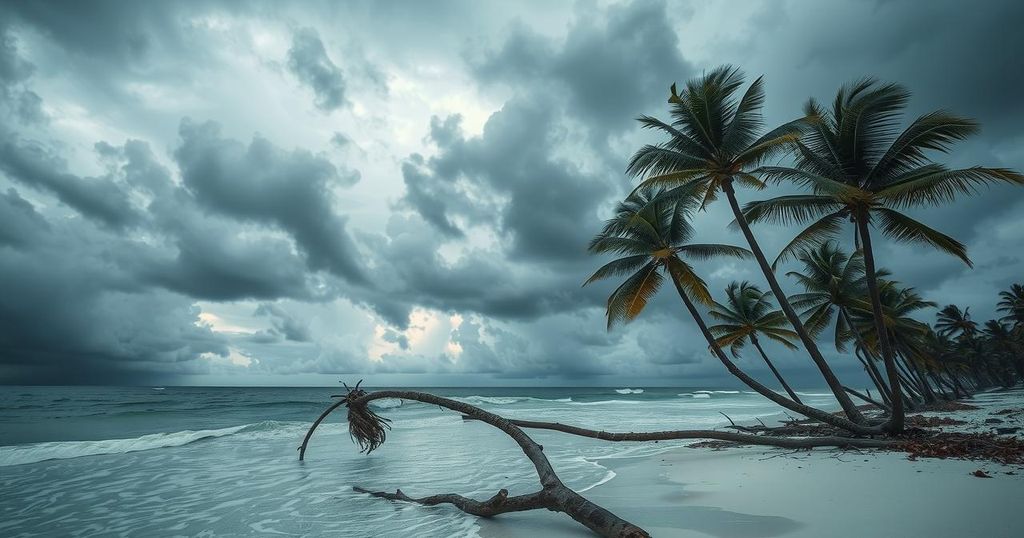Impact of Tropical Cyclone Dikeledi on Madagascar and Mozambique
Tropical Cyclone Dikeledi struck northern Madagascar on January 11, impacting over 5,000 individuals and causing three deaths. The storm displaced 352 people and destroyed more than 60 schools, leaving 750 children without education. As the cyclone moved into Mozambique, seriously degraded weather conditions and further risks were anticipated for the affected provinces, necessitating urgent humanitarian assistance.
Tropical Cyclone Dikeledi impacted northern Madagascar on January 11, resulting in significant rainfall and damaging winds. The cyclone has directly affected over 5,000 individuals, leading to three fatalities and displacing 352 individuals across six temporary sites. The storm also caused the destruction of more than 60 schools, leaving 750 children without access to education.
The National Office for Risk and Disaster Management (BNGRC) reported nearly 1,300 houses flooded, with 370 sustaining damage and 11 completely destroyed. Additionally, at least 20 classrooms were destroyed, while 49 suffered partial damage. Furthermore, five health centers were reported damaged, complicating the humanitarian response in affected areas.
On January 13, Cyclone Dikeledi intensified as it made landfall in the Nampula Province of Mozambique, where it exhibited tropical cyclone characteristics. The provinces of Nampula, Cabo Delgado, and Zambezia are currently facing severe weather conditions, including torrential rainfall and destructive winds projected to reach 150 kilometers per hour. These conditions are expected to cause severe thunderstorms and marine hazards in the vicinity.
The cyclone is anticipated to transit through Nampula Province, gradually shifting its trajectory southwards back toward the Mozambique Channel. It is expected to regain strength and may develop into a more intense cyclone in the forthcoming days, posing further risks to the coastal regions. Heavy rainfall is predicted for Sofala and Manica provinces on January 15 and 16, which may also extend to adjacent areas.
In summary, Tropical Cyclone Dikeledi has caused substantial devastation in northern Madagascar, affecting thousands and leading to significant infrastructure damage. The situation remains critical as the cyclone progresses into Mozambique, where further adverse weather conditions and humanitarian challenges are expected to unfold.
In conclusion, Tropical Cyclone Dikeledi has resulted in considerable destruction in northern Madagascar, affecting over 5,000 people with loss of life and severe infrastructural damage. The storm’s impact continues to escalate as it moves towards Mozambique, where it is expected to strengthen and pose further challenges. Humanitarian response efforts are underway to assist the affected populations, highlighting the urgent need for ongoing support and disaster preparedness.
Original Source: www.unocha.org




Post Comment